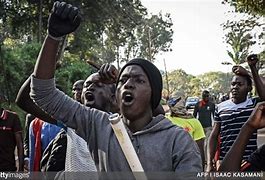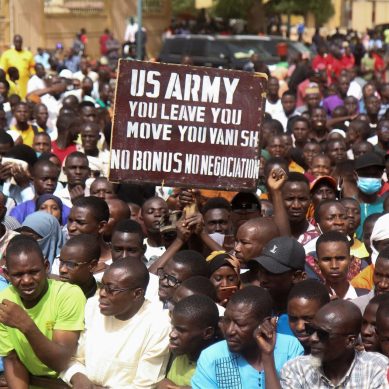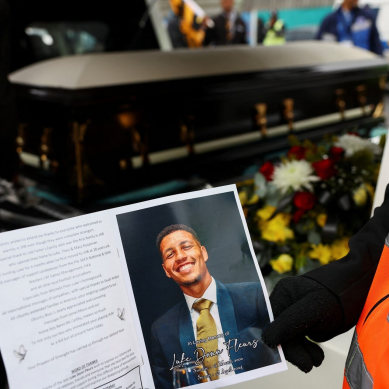
This topic links three concepts in one sentence: Political Dispensation, Liberation and the political elite. Let me begin discoursing on it by telling you what I mean by the three concepts so that we are all at the same wave length right away.
Political dispensation is an important era in a specified political period defined by its individual uniqueness and has its own demands and expectations. The peculiarities of any political dispensation demand practically the emergence of political parties that contest and win election that eventually emerge a leader that can effectively lead and manage the economy of a nation (Infoscipedia).
The Britannica Dictionary defines liberation as “the act or process of freeing someone or something from another’s control: the act of liberating someone or something (for example, liberation from military occupation, liberation from slavery, liberation from taxation oppression).
However, liberation can assume different dimensions as many as the dimensions of the human brain: cultural liberation, economic liberation, ecological liberation, environmental liberation, spiritual liberation, social liberation, ecological liberation, environmental liberation and political liberation, to name but a few. It pre-supposes that people have been conquered, and are occupied and controlled by others in all these diverse dimensions.
In this article I am interested in political liberation, which when experienced, may lead to liberation in the other dimensions, where the leaders and governors are truly patriotic and national in character. I want to see if political liberation of Ugandans from the criminal elite is possible.
Elite means men and women who occupy the highest positions in government, corporations, etc. Criminal elite are those who engage in elite crime, which is the criminal behaviour of elites that is part of their normal activity, such as evading taxes, hiring illegal immigrants as domestics or engaging in insider trading. There are many types of criminal elite. Political criminal elite, economic criminal elite, religious criminal elites, etc.
The most dangerous criminal elite are the political criminal elite because they can penetrate and influence the other types of criminal elite. So, if we are to liberate ourselves from the criminal elite, we must aim at liberating ourselves from the political criminal elite politically. Such liberation is a critical type of political liberation.Without it, other types of liberatiion are impossible to experience.
Selucký (1979) elucidates Marx’s Concept of Political Liberation of Man. He writes that contrary to the widespread belief that Marx’s political theory is just a reflection of his economic theory, it combines at least three basic approaches to politics: economic, sociological and political.
Marx’s economic approach to politics consists in his famous concept of base and superstructure, the base being the economic structure of society and the superstructure being an ensemble of politics, law, ideology, culture, etc. Marx’s sociological approach to politics is based on his concept of the social division of labour and of classes. And finally, Marx’s political approach to politics stems from his concept of politics as the power reflecting and regulating conflicts in civil society.
Selucký adds that the state is a political organisation of society. 1. As such, it rests on class rule (If there was no need for class political rule, there would be no need for the existence of the state; 2 Political power is the essence of politics meant for Marx, interchangeably, either the expression of class conflicts within bourgeois society (The Poverty of Philosophy), or of class antagonism in civil society, or of class oppression (The Communist Manifesto).
Consequently, politics is applied to civil society only. Marx did not accentuate enough the fact that political conflicts may reflect not only (antagonistic) class conflicts, but also conflicts within a social class or, yet more important, within a classless society. For instance, there may be a conflict between industry, agriculture and services, between various industrial branches, etc. There may also be conflicts concerning ethical values (e.g. abortion, capital punishment, etc.). These conflicts have little to do with class structure and class oppression: they may occur in any society. Marx’s and Engels’ perception of politics was too schematic, too narrow and too class-oriented. For one thing, politics reflects not only class conflicts but all the conflicts of interest between major social groups (Selucký, 1979).
Collins, Kohfeldt, Kornbluh (2020) state that psychologically, activists tended to examine political and historical contexts to understand the root causes of oppression and how their own oppressed and privileged identities fit within those larger systems. Politically, activists sought opportunities to enhance their capacity as activists and engage in critical actions to build power and seek liberation. Bridging these psychological and political domains, activists also formulated a theory of liberation and engaged in critical self-reflection, which guided their political actions.
Kohn Margaret and McBride Keally (2011) addressed the philosophy of liberation: A theoretical approach that weaves together a Christian ethos of responsibility and a Marxist-inspired concern about inequality and struggle.
In his book The Resistance in Western Europe, 1940–1945, Chapter XVIII “Political Liberation”, published Columbia University Press, Olivier Wieviorka (2020), political liberation entails patriotism, citizenship, sovereignty, legitimacy and ownership independence of the liberated people. Political liberation is empty if all these are captured and possessed by those who say they liberated the people. Military occupation and capture of a country, and these ideals distort political liberation and the future of the country. The indigenes may be excluded from the centrality of leadership and governance.
Gwinyai Muzorewa has addressed the issue of true political liberation beyond independence in Africa. Observing that the term liberation tends to be used very loosely these days, he submits that it can also mean something specific and be crucial and relevant to our everyday life. In this case he chose to discuss political liberation in his country, Zimbabwe, although what is happening in his country is the general African neocolonial experience.
He submits: “Political liberation means much more than taking the means of power from another ruling body (or political regime)…it is more than hoisting a flag of our choice, renaming the country what we wanted, shouting slogans of military victory, renaming streets according to our heroes and heroines, building mansions, houses…depending on our economic means. This is but a very limited meaning of liberation.
Liberation is primarily intellectual. It is in the mind and the heart.There was a time during the struggle when we thought that all we wanted was to rule ourselves”. Thus, political independence is not political liberation. In Uganda, we have more or less remained where we were when we got political independence from the British colonialists.
Liberation is not in our minds and hearts. We are instead militarily conquered, occupied, controlled and dominated by those who say they liberated us. They have grabbed everything we called a national asset, and are now politically directing what remained ours: land by people of foreign roots: Banyarwanda, Indians and Chinese. mainly.
Just like in the case of other African countries where the rulers have decided to resist true political liberation for their own selfish and greedy ends from political independence, and are instead degrading society, siphoning off public money to foreign destinations and investing in projects outside the country in favour of their historical roots, Uganda’s socio-economic space needs a major socio-economic and political surgery. And the need for the surgery is to liberate from the current cancerous state, which is in desperate need for new values (e.g. Gwinyai Muzorewa, 2023).
We are in a sad situation where the rulers are promoting the foreign acquisitive culture, whereby everything possible is being grabbed and possessed by the criminal elite and, those connected to them; and the sterile culture of money, which, being superior, is destroying our time-tested traditional cultures and their social and economic structures and functionality. That is why we need a new political depensation that is culturally, socially, ecologically and environmentally conscious to the true political liberation needs of our country and people from disguised foreign conquest, occupation, control and domination.
Perennial military slogans, songs and celebrations year in year out, and the perennial lie that we experienced liberation, are also perennially concealing the truism that we are under conquest, occupation, domination and rule by people who came from elsewhere and captured our instruments of power.
If we are going to implant a new political dispensation that will truly politically liberate us from the criminal elite posing as liberators, yet they are “cancerous parasites”, we have to forget NRM, UPC, ANT, FDC, NUP, et cetera, which are infested with criminal political elites, simply interested in primitive accumulation of wealth at the expense of our people and country. The real liberation has yet to begin. We should not leave it to the future generations of Ugandans, when it is our generation, which has bred a culture of unethical, immoral, inconsiderate, greedy, exploitative and selfish criminal elite, now spread across all social strata of Uganda, into which we are nurturing our young people we shall leave the country for them to take forward.
The political criminal elite have captured and destroyed our intellectual fibre, which was growing and developing supersonically upwards. If it is true that liberation is primarily intellectual, then our current rulers, the criminal political elite, have ensured that they bring an end to intellectual growth and development, and are stressing academicism and scholasticism, in their effort to ensure that no true political liberatiion takes place in our lifetime in Uganda. They have brought in Indians and Chinese to occupy the economic space and are allowing refugees from everywhere to occupy the social space and marginalize the indigenous peoples from meaningful social development.
Liebertz (2020) examines the effect of crime on support for criminal justice systems in Latin America. Scholars empirically demonstrate a strong negative effect of crime on support for institutions and satisfaction with democracy. This should be of concern to Ugandans in the 21st Century Uganda. Political crime is undermining our institutions, justice, peace, security and democracy on a long-term basis in our country. It is organised political crime in practice.
Izuchukwu Adamaagashi (2023) has analysed the effects of political power on criminal behaviour of the political elite of Nigeria. His study provides insights into the close connection between political power and criminal behavior in Nigeria, emphasising the need for interventions and reforms to address this issue. We need such analyses in Uganda by our academic elite at our numerous Universities.
Political crime promises to be the worst crime in the country well in the future, which may make the country ungovernable as the people rise against it and the rulers react with gunpower. Overconcentration of power in the hands of one individual, which the Uganda Constitution 1995 did, seems to have laid the ground for the supremacy of political crime in leadership and governance and the aftermath in Uganda. Our scholars should develop necessary research to investigate this.
Simon and Eitzen (1982) describe wrongdoing – mcriminal, moral, ethical – by wealthy and powerful individuals in corporate and governmental organisations. They express concern for a lack of social scientific knowledge of high-level deviance and suggest social and economic solutions. However, elite deviance should evoke political solutions ahead of social and economic solutions. Without political will, we cannot succeed in conquering political crime of the criminal political elite. Crime of the political elite is the greatest challenge in fighting crime in the country. They are in positions of influence, which enables them to lay down pathways of political, financial and economic crime. They may even excuse their business partners from paying tax while enforcing the poor and needy to pay taxes at all cost, especially through multiple taxation. We have heard of the so-called foreign investors being given tax holidays and that some end up in business ventures with some highly placed people in government. At times political elite caught in the act of stealing are not punished because they are big fish, and the small fish are punished because they lack people in government who can protect or defend them.
Moreover, some big fish in government are doing business with some leaders in the so-called Opposition. That is why I am making a clarion call for new conscious political parties with Ugandans averse to crime of the political elite, and for research on the criminal elite of Uganda and the endless corruption of the rulers in Uganda.
Interestingly, government is rethinking the way it has been recklessly using tax payers’ money. It is rethinking expenditures on administration. It will be meaningful if the reckless expenditures on/in State House, Security and the “Politics Industry” are simultaneously rethought to release money for development, transformation and progress of Uganda in the 21st Century. However, it is a drastically new political dispensation that is necessary to liberate Uganda and Ugandans from bondage to the criminal elite.
The Literature attached should educate you on the challenge of the political criminal elite and the need to liberate ourselves from the political criminal elite to experience real independence from oppression.
For God and My Country
- A Tell report / By Prof Oweyegha-Afunaduula, a former professor in the Department of Environmental Sciences of the Makerere University, Uganda
Abadinsky, H. (1983). Criminal Elite – Professional and Organised Crime. NCJRS Virtual Library. https://www.ojp.gov/ncjrs/virtual-library/abstracts/criminal-elite-professional-and-organized-crime Visited 9th April 2024.
Alina Rocha Menocal (2022). Incorporating organised crime into analysis of elite bargains and political settlements: Why it matters to understanding prospects for more peaceful, open and inclusive politics. Serious Organized Crime and Anti-Corruption Evidence.
Alizée Delpierre (2024) The Endless Corruption of the Powerful. https://www.google.com/search?q=Aliz%C3%A9e+Delpierre%2B+Corruption&oq=Aliz%C3%A9e+Delpierre%2B+Corruption&gs_lcrp=EgZjaHJvbWUyBggAEEUYOTIJCAEQIRgKGKABMgkIAhAhGAoYoAHSAQo3MjgwNmowajE1qAIIsAIB&sourceid=chrome&ie=UTF-8 Visited 5th April 2024. 17.42 pm
Bourveau, Thomas, Coulomb, Renaud and Sangnier, Marc (2020). Political Connections and White-collar Crime: Evidence from Insider Trading in France. Munich Personal RePEc Archive, MPRA
Cedric Michel, Kathleen Heide and John Cochran (2014). The Consequences of Knowledge about Elite Deviance, American Journal of Criminal Justice, 41/2. DOI: 10.1007/s12103-014-9285-z
Charles R. Collins, Danielle Kohfeldt, Mariah Kornbluh (2020). Psychological and political liberation: Strategies to promote power, wellness, and liberation among anti-racist activists. In: Journal of Community Psychology, Volume 48, Issue 2 (March 2020): Pages 369-386 ,https://doi.org/10.1002/jcop.22259 https://onlinelibrary.wiley.com/doi/abs/10.1002/jcop.22259 Visited 5h April at 12:57.
Coleman, J.W. (1985). Criminal Elite -The Sociology of White-Collar Crime. NCJRS Virtual Library. https://www.ojp.gov/ncjrs/virtual-library/abstracts/criminal-elite-sociology-white-collar-crime Visited 8th April 2024.
Claudia Radiven & Simon Prideaux (Eds) (2021). Crimes of States and Powerful Elites. A collection of case studies investigating the crimes of the powerful, the social harms caused and the perpetuation of inequalities through lack of prosecution. PDF 236 pages. Anthem Press.
Crime, I.S (2016). Elites and Organized Crime: Introduction, Methodology and Conceptual Framework. InSight Crime. IDRC, CRDI https://idl-bnc-idrc.dspacedirect.org/server/api/core/bitstreams/00140be8-b4f7-408b-bf5e-269690a8ac97/content Visited 8 April 2024.
DFID (2010). The Politics of Poverty: Elites, Citizens and States: Findings from ten years of DFID-funded research on Governance and Fragile States 2001–2010 – A Synthesis Paper.
Francesca Jensenius and Abby Wood, caught in the Act but not Punished: on Elite Rule of Law and Deterrence, 4 PENN. ST. J.L. & INT’L AFF. 686 (2016). Available at: https://elibrary.law.psu.edu/jlia/vol4/iss2/13
Gianmarco Daniele (2019). Strike one to educate one hundred: Organized crime, political selection and politicians’ ability. Journal of Economic Behaviour and Organization. Volume 159, March 2019, Pages 650-662. https://doi.org/10.1016/j.jebo.2017.07.021 https://www.sciencedirect.com/science/article/abs/pii/S0167268117301993 Visited on 4th April 2024.
Gwinyai Muzorewa (2023). Some Thoughts on African Liberation: From Independence to True Liberation – Part II. IN: The Other Journal at The Seatle School of Theology and Psychology, Issue 6: Africa. https://theotherjournal.com/2005/08/some-thoughts-on-african-liberation-from-independence-to-true-liberation-part-ii/ Visited 5th April, 2024. At 13.45 pm EAT.
Izuchukwu Adamaagashi (2023). Analysing the Effects of Political Power on the Criminal Behaviour of the Political Elites of Nigeria. International Journal of Social Sciences and and Management Research, Vol 9 No 62023(July 31,2023): Pg1-28. PDF DOI:10.56201/ijssmr.v9.no6.2023.pg1.28 https://www.researchgate.net/publication/372948190_Analyzing_the_Effects_of_Political_Power_on_Criminal_Behavior_among_Political_Elites_in_Nigeria Visited on 8th April 2024.
James William Coleman (1998). The criminal elite: understanding white-collar crime. St. Martin’s Press, New York, ©1998.
John P. Heinz and Peter M. Manikas (1992). Networks among Elites in a Local Criminal Justice System. Law & Society Review, Vol. 26, No. 4 (1992), pp. 831-862 (31 pages). Cambridge University Press
Knight, R. (2022). Tackling land corruption by political elites – The need for a multi-disciplinary, participatory approach. FAO Legal Papers No. 111. Rome, FAO. https://doi.org/10.4060/cc0079en
Kohn Margaret and McBride Keally (2011). The Philosophy of Liberation. https://doi.org/10.1093/acprof:oso/9780195399578.003.0007Pages119–141. https://academic.oup.com/book/10542/chapter-abstract/158467092?redirectedFrom=fulltext Visited 5th April 2024.
Liebertz, S. (2020). Political Elites, Crime, and Trust in the Police in Latin America. International Criminal Justice Review, 30(2), 175-196. https://doi.org/10.1177/1057567717747012,5https://journals.sagepub.com/doi/abs/10.1177/1057567717747012?journalCode=icja, Visited 4th April, 2024.
Meléndez, Javier (2016). Elites and Organised Crime: Conceptual Framework -Elites. InSight Crime 23rd March 2016. https://insightcrime.org/investigations/elites-and-organized-crime-conceptual-framework-elites/ Visited 8th April 2024.
Mikkel Jarle Christensen (2023). The Elites of International Criminal Justice. Complementing and Challenging the State. Social Forces, iCourt Working Paper Series No.333, 2023. (IN PRESS).
Olivier Wieviorka (2020), The Resistance in Western Europe, 1940–1945. Columbia University Press 2020. https://doi.org/10.7312/wiev18996-022 https://www.degruyter.com/document/doi/10.7312/wiev18996-022/pdf Visited 5th April 2024
Olsson, C. (2022). The criminalization of Politics, the politics of criminalization and their paradoxes. . Journal of Political Power, 15(1): 163-169. https://doi.org/10.101080/2158379X.2022.2033099
Pearce, Jenny ( ). Elites and Violence in Latin America: Logics of the Fragmented Security State. Violence, Security, and Peace Working Papers • No.1 • August 2018 Latin America and Caribbean Centre.
Selucký, R. (1979). Marx’s Concept of Political Liberation of Man. In: Marxism, Socialism, Freedom. Palgrave Macmillan, London. Springer Link. https://doi.org/10.1007/978-1-349-04403-0_3 https://link.springer.com/chapter/10.1007/978-1-349-04403-0_3#citeas Visited on 5th April 2024.
Simon, D.R. (1999). White-Collar Crime, Dehumanization and Inauthenticity: Towards Millsian Theory of Elite Wrongdoing. International Review of Modern Sociology, Vol. 21, No. 1 (Spring 1991), pp. 93-107 (15 pages). Published By: International Journals
Simon, D.R. and D.S. Eitzen (1982). Elite Deviance. Office of Justice Programs. (govi). https://www.ojp.gov/ncjrs/virtual-library/abstracts/elite-deviance Visited on 5th April 2024 at 14 50
Łoś, M. (1988). Crimes of the Political Elite: ‘Red-Collar Crime’1. In: Communist Ideology, Law and Crime. Palgrave Macmillan, London. https://doi.org/10.1007/978-1-349-08855-3_6 Palgrave Macmillan, London
United States Institute of Peace (2023). Elite Capture and Corruption of Security Sectors. First published February 2023
Veselin Konatar (2012). Transitional unity: political elites, intelligence structures and organized crime. Journal Studia Securitatis, Issue No.3: 91-107.
Yuliya Zabyelina (2023). Between Immunity and Impunity. Online Publication. Cambridge University Press https://doi.org/10.1017/9781009086301 https://www.cambridge.org/core/books/between-immunity-and-impunity/7603B963C2DBA67A73B36E2974406942 Visited on 4th April 224 at 16.52 pm EAT.











